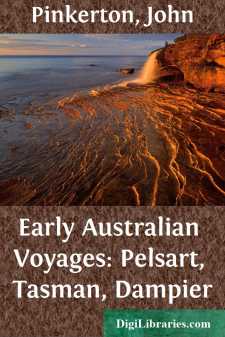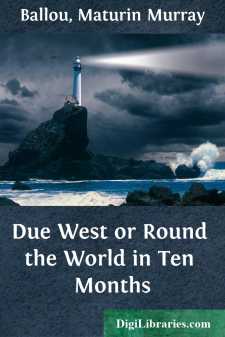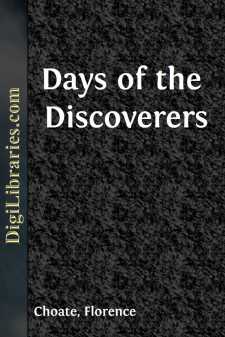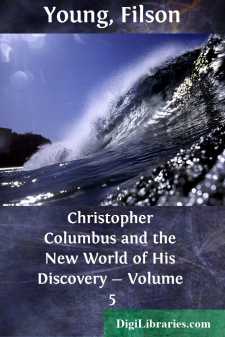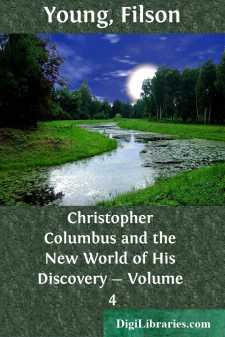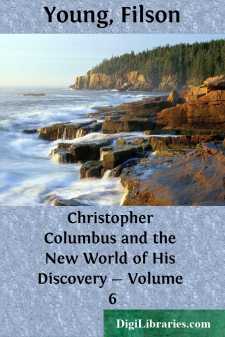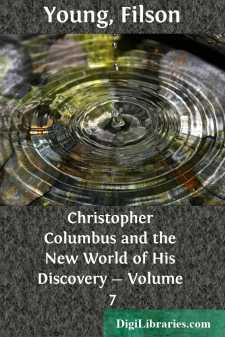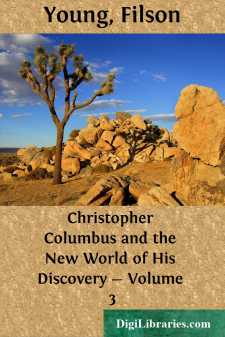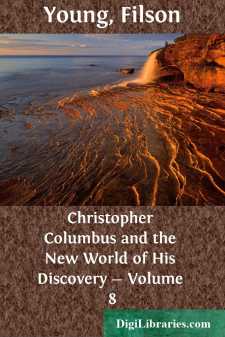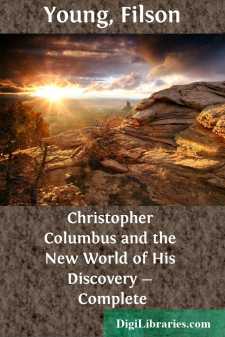History
- Africa 30
- Americas (North Central South West Indies) 50
- Ancient 68
- Asia 58
- Australia & New Zealand 8
- Canada 41
- Caribbean & West Indies 1
- Civilization 20
- Eastern Europe 12
- Europe 310
- Expeditions & Discoveries
- General 77
- Historical Geography 1
- Jewish 9
- Latin America 3
- Medieval 8
- Middle East 13
- Military 248
- Revolutionary 8
- Study & Teaching 5
- United States 353
- Western Europe 56
- World 13
Expeditions & Discoveries Books
Sort by:
by:
John Pinkerton
In the days of Plato, imagination found its way, before the mariners, to a new world across the Atlantic, and fabled an Atlantis where America now stands. In the days of Francis Bacon, imagination of the English found its way to the great Southern Continent before the Portuguese or Dutch sailors had sight of it, and it was the home of those wise students of God and nature to whom Bacon gave his New...
more...
CHAPTER I. Synopsis of the Journey.—Crossing the Continent.—A Great Midland City.—Utah and the Mormons.—The Sierra Nevada.—San Francisco.—A Herd of Sea-Lions.—Possibilities of California.—The Love of Flowers.—Public School System.—Excursion to the Yosemite.—An Indian Stronghold.—Description of the Valley.—Passage of the Mountains.—Caught in a Snow-Storm.—A Forest of...
more...
by:
Florence Choate
TO FORESTAUpon the road to Faerie,O there are many sights to see,—Small woodland folk may one discernHousekeeping under leaf and fern,And little tunnels in the grassWhere caravans of goblins pass,And airy corsair-craft that floatOn wings transparent as a mote,—All sorts of curious things can beUpon the road to Faerie!Along the wharves of Faerie—There all the winds of ChristendieAre musical with...
more...
by:
Filson Young
CHAPTER I THE VOYAGE TO CUBA The sight of the greater part of their fleet disappearing in the direction of home threw back the unstable Spanish colony into doubt and despondency. The brief encouragement afforded by Ojeda's report soon died away, and the actual discomforts of life in Isabella were more important than visionary luxuries that seemed to recede into the distance with the vanishing...
more...
by:
Filson Young
THE HOUR OF TRIUMPH From the moment when Columbus set foot on Spanish soil in the spring of 1493 he was surrounded by a fame and glory which, although they were transient, were of a splendour such as few other men can have ever experienced. He had not merely discovered a country, he had discovered a world. He had not merely made a profitable expedition; he had brought the promise of untold wealth to...
more...
by:
Filson Young
THE THIRD VOYAGE Columbus was at sea again; firm ground to him, although so treacherous and unstable to most of us; and as he saw the Spanish coast sinking down on the horizon he could shake himself free from his troubles, and feel that once more he was in a situation of which he was master. He first touched at Porto Santo, where, if the story of his residence there be true, there must have been potent...
more...
by:
Filson Young
DEGRADATION The first things seen by Francisco de Bobadilla when he entered the harbour of San Domingo on the morning of the 23rd of August 1500 were the bodies of several Spaniards, hanging from a gibbet near the water-side —a grim confirmation of what he had heard about the troubled state of the island. While he was waiting for the tide so that he might enter the harbour a boat put off from shore...
more...
by:
Filson Young
CHAPTER I THE ENCHANTED ISLANDS Columbus did not intend to remain long at San Salvador. His landfall there, although it signified the realisation of one part of his dream, was only the starting-point of his explorations in the New World. Now that he had made good his undertaking to "discover new lands," he had to make good his assurance that they were full of wealth and would swell the revenues...
more...
by:
Filson Young
RELIEF OF THE ADMIRAL There was no further difficulty about provisions, which were punctually brought by the natives on the old terms; but the familiar, spirit of sedition began to work again among the unhappy Spaniards, and once more a mutiny, led this time by the apothecary Bernardo, took form—the intention being to seize the remaining canoes and attempt to reach Espanola. This was the point at...
more...
by:
Filson Young
The writing of historical biography is properly a work of partnership, to which public credit is awarded too often in an inverse proportion to the labours expended. One group of historians, labouring in the obscurest depths, dig and prepare the ground, searching and sifting the documentary soil with infinite labour and over an area immensely wide. They are followed by those scholars and specialists in...
more...


